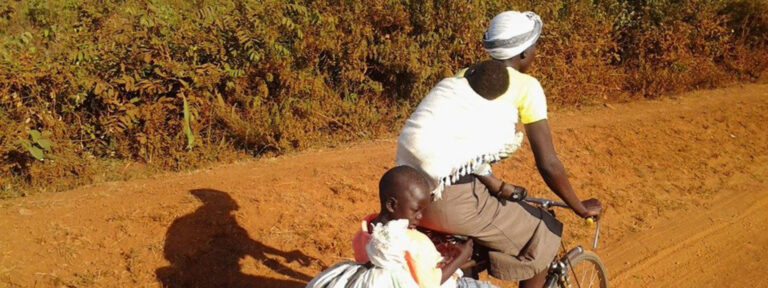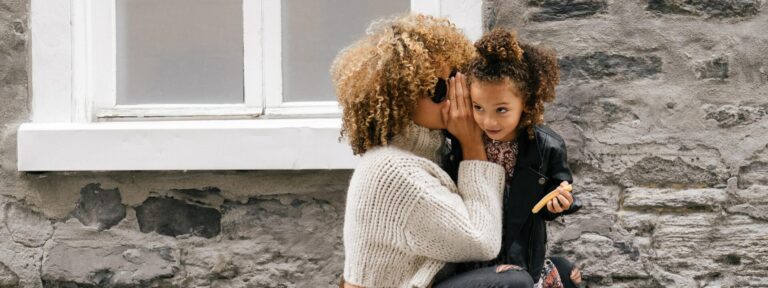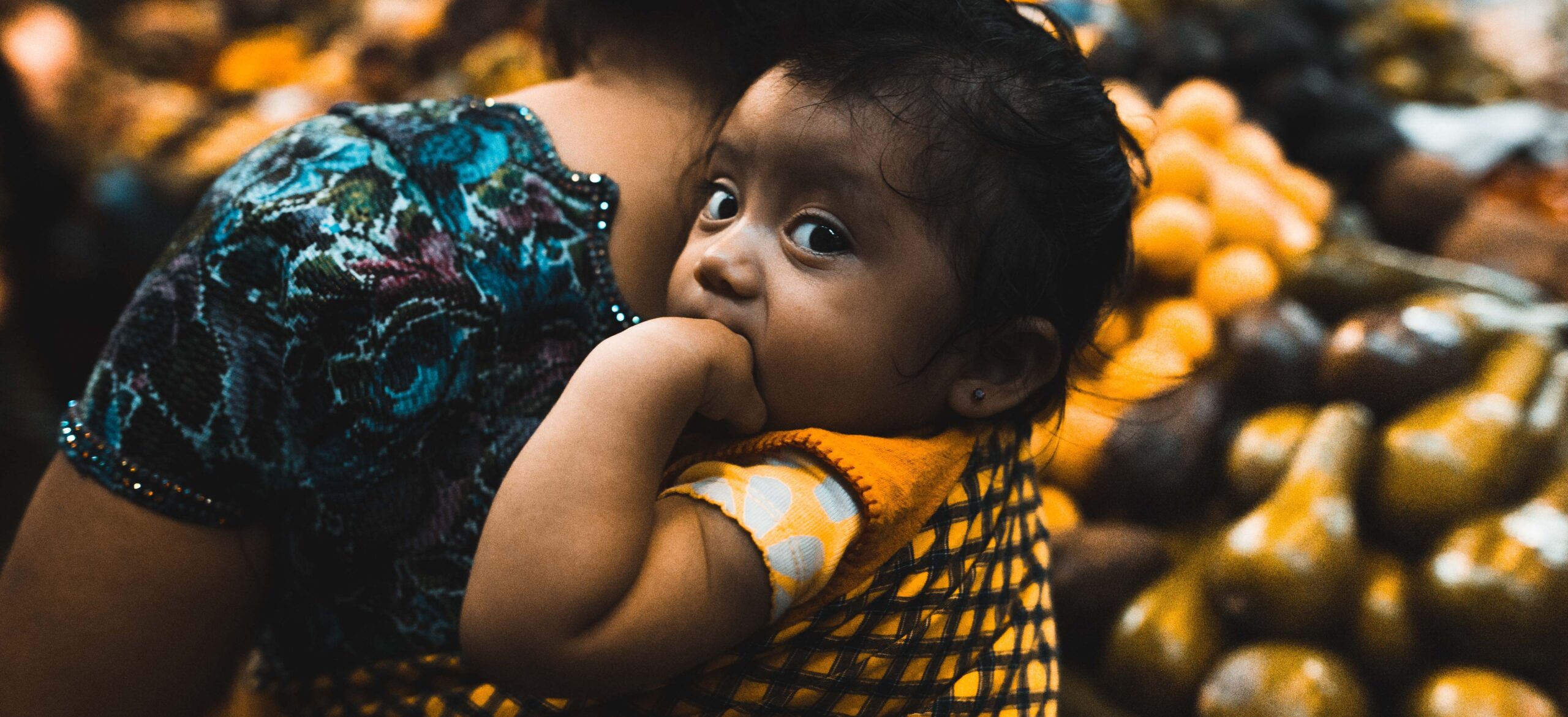
Reflections on motherhood
On UK Mothers’ Day, Population Matters Communications Officer Florence Blondel reflects on being a new mother, harmful social expectations and pressures, her childhood in Uganda, and the power of choice.
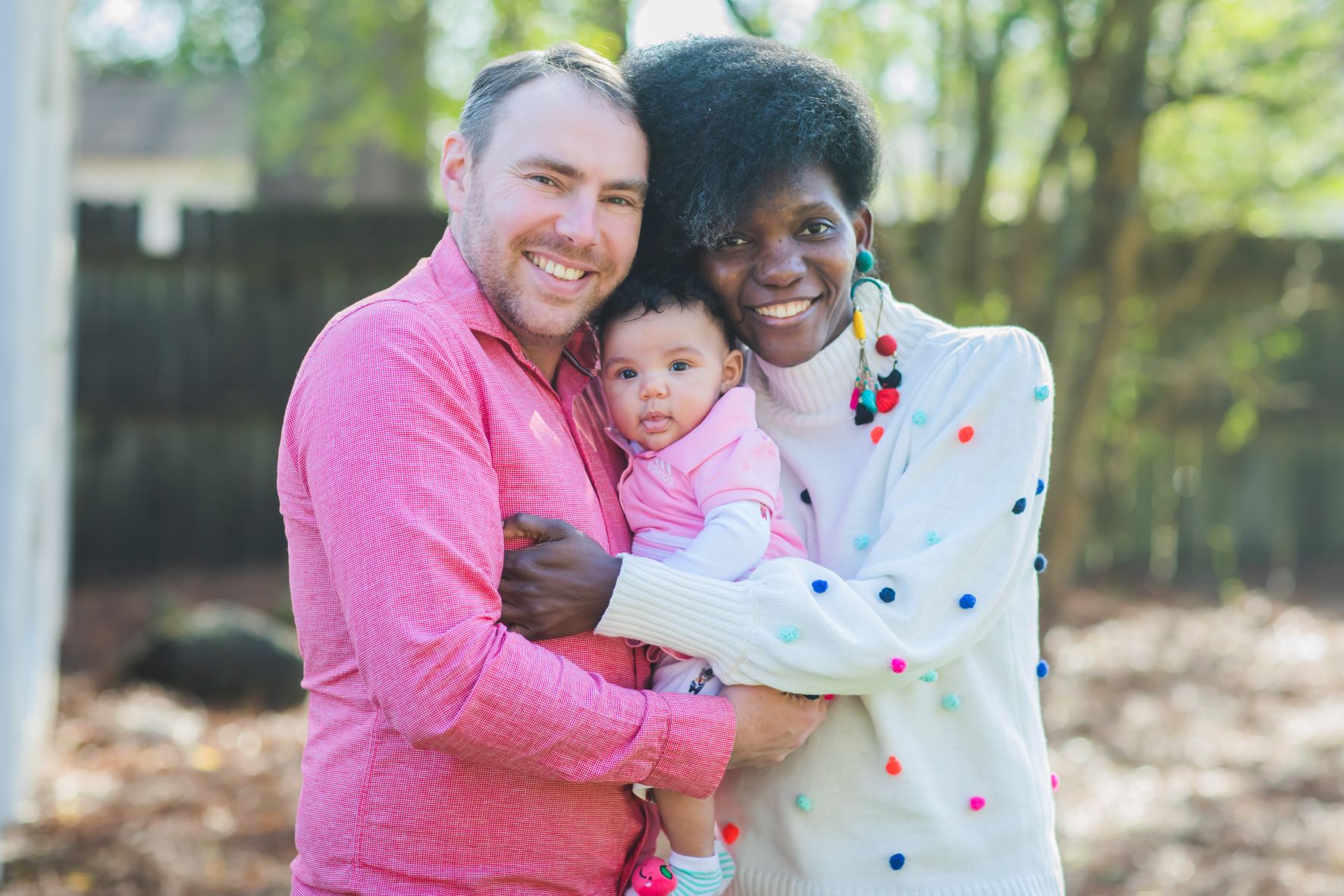
Commenter 1: Happy anniversary, but where’s your baby?
Commenter 2: You better give that man a baby if you want to last in marriage.
Commenter 3: She’s concentrating on a dog rather than looking for her child. Invest time on how to get pregnant.
Commenter 4: 4yrs no baby for him what’s that. Yo the people who started taking pregnancy pills at 13yrs now no ovaries
These were some of the comments on my fourth wedding Anniversary Facebook post. People who were bothered that I was married for a ‘long time’ without having a baby. Others said it was “unAfrican” not to be a mother. But, of course, they all ignored that I essentially already had a daughter (now 12 years old) – my younger sister’s kid whom she had as a teen. That had them miffed, and they couldn’t stop preaching how it was nice to “have your own child”.
Yes, I’m “finally” a mother – a biological one. Destiny fulfilled? Maybe not yet, as one biological child may not satisfy them. Perhaps I could outdo my late mother and give birth to more than ten, because that’s some accepted superpower each woman should apparently possess. The commenters will rejoice, but others would probably call me a ‘breeding rabbit’. There’s no winning. I’m thankfully an ardent believer in small families, partly because my mother had ten children, including seven of us from one man. Our father had four other children from three other ladies, our stepmoms, some of whom we never interacted with. I always get dizzy doing the ‘how many are we again’ maths! But in all seriousness, I don’t care what that kind of society thinks about my uterus.
Am I a traitor?
When I got married in 2017, my younger sister said, “I remember you telling us that you don’t need marriage, a man and kids a few years back.” Hahaha, I can’t help but laugh in Ugandan. Many of my friends did remind me of that too, as did social media strangers because I announced the same on national television.
See, the beauty of having your own mind as a woman, even growing up in a country like mine, is that you should always be entitled to choose and to change your mind. Unfortunately, only a few of us are empowered enough to break from what’s drilled into our mini-selves from childhood, and that is to be a mother and a wife.
So, no, I have not betrayed the ’cause’, my dear single and childfree friends, even when I have felt like a traitor on occasion.
The situation in my country
I’m a Ugandan, and living in America can’t make me forget that my country has been ranked among the worst places to be a mother and child for years on end. Our maternal mortality rate is among the highest. Frankly, this fact struck fear in me and scared me off pregnancy. Even surviving a pregnancy would be no assurance that my child would be okay either. Although there have been improvements in child health, Uganda is a country where “many children miss out on childhood”, ranking 156th out of 186 countries according to Save The Children’s 2021 End of Childhood Index. The primary reasons include ill-health, malnutrition, exclusion from education, child labour, child marriage, and early pregnancy. Such reasons, especially child marriage and early pregnancy (embraced by society), put me off having kids. It was my way of rebelling against society’s wishes for girls. Now that I’m a mother, I must say that I am more at peace knowing that my daughter will not experience such things.
My daughter was planned. She was and is a wanted child. There was no method failure, as was the case with my younger sister’s current newborn. “We shall manage”, she told me. So many such stories of contraceptive failure exist, as do the ones where women are not able to use modern contraceptives despite wanting to prevent pregnancies (over 270 million women currently globally), or even space their children. In my sister’s case, she said she would ask that her tubes be tied after the birth. The possibility that her husband could get his snipped – have a vasectomy – hasn’t been discussed.
The burden of preventing a pregnancy still largely falls on women. In countries such as mine, most cultures/men are obsessed with having many children, deterring their partners from accessing family planning services. Women and girls’ needs remain predominantly unmet and are often sidelined.
Uganda’s adolescent birth rate is among the highest globally, at 116 per 1000 girls aged 15-19. It is significantly higher than the world average (44) and also higher than the average for sub-Saharan Africa (102), so I’m lucky not to have been part of that statistic. It is sad, though, that most young girls and women who break out of this cycle put it down to luck. We have a relatively rapid population growth rate at about 3.2% per annum. On average, a Ugandan woman will have more than five children throughout her reproductive life. In my district, it’s as high as eight. Moreover, the district’s population under 17 years is about 61% (22% of females 12-19 years old have given birth – goodness knows how these young girls navigate motherhood when I still heavily rely on Google in my thirties!). I have no regrets that I started a family at 37 years, an age at which my mother had already had her ten children.
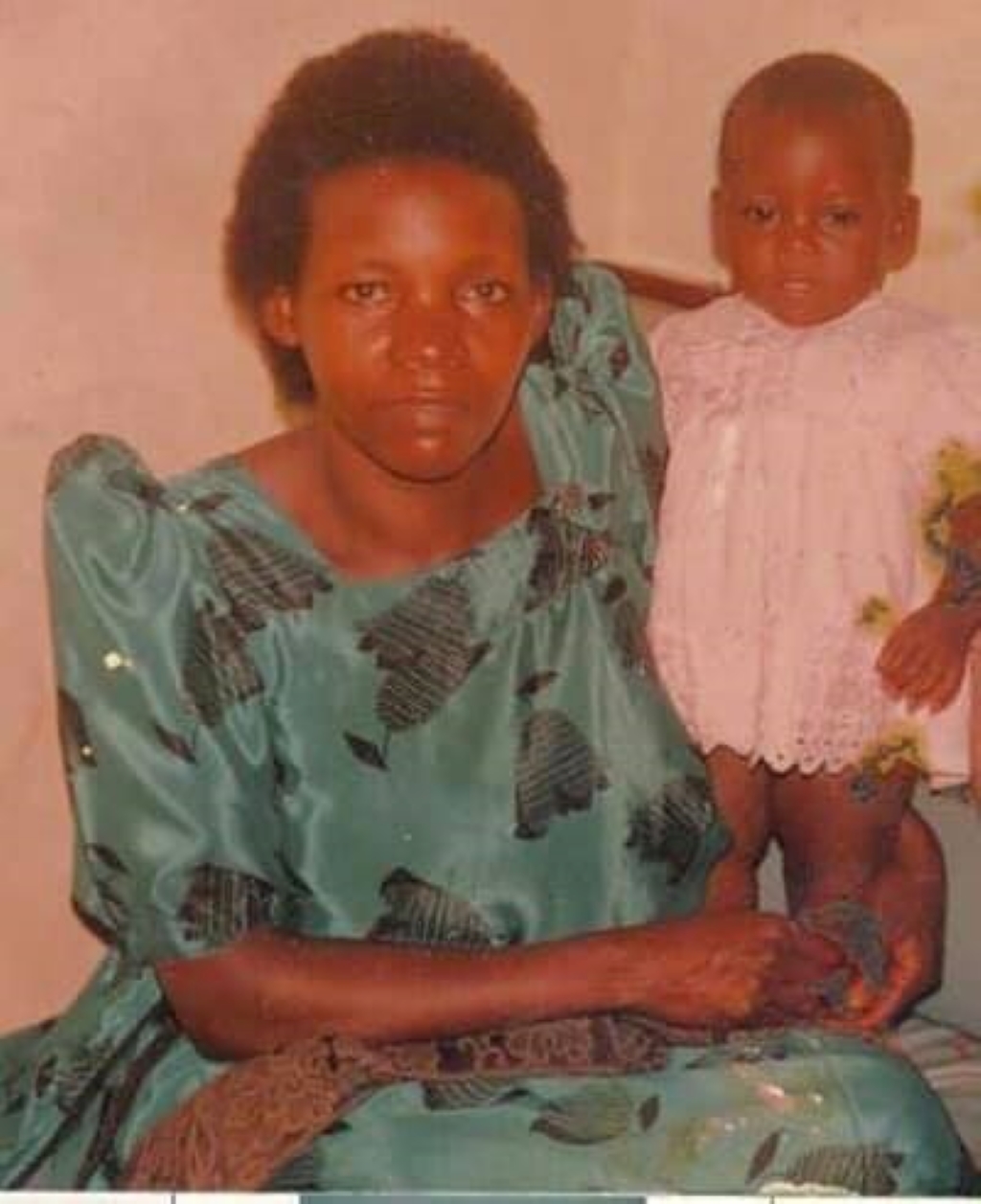
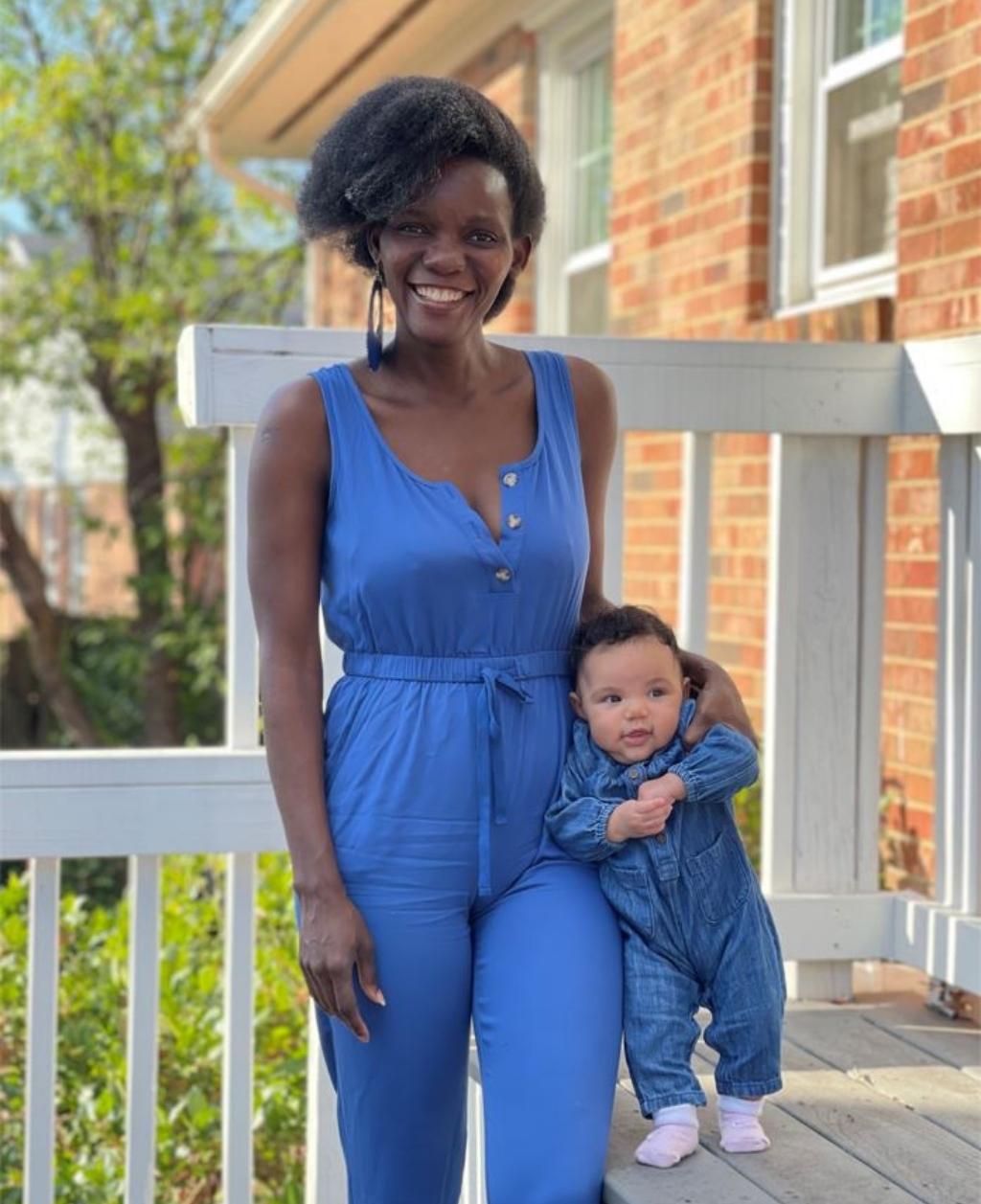
While being an AMA (advanced maternal age) woman comes with risks, it also brings many advantages, especially if you’ve achieved most of your life pursuits. My child’s father and I are established; more emotionally and financially prepared. Moreover, the longer you wait to have children, the more the planet flourishes. According to Global Footprint Network, postponement of childbearing by even just 2 years, alongside every other family having one fewer child, can push Earth Overshoot Day back by 49 days by 2050.
The power of choice
I’m enjoying spending time with my little madam (and not menstruating as breastfeeding puts a stop on that unwanted tap). Still, nothing quite readied me for the experience of becoming a full-time parent. Being a mother is certainly not easy, and I felt disoriented by how much I didn’t know. I have realised how little a first-time mom (FTM) really knows, despite how much the patriarchy tells us from childhood about the importance of the motherhood ‘rite of passage’.
I assume that FTMs do struggle, especially in the first four weeks – I did. It’s exhausting and overwhelming. While sleepless nights come with the territory, I legitimately only got a few decent hours of sleep in the first month. The Jitters, though! Don’t get me started!
There are days when I hold my daughter and burst out crying just thinking of my mother. There is no way she had time to rock me about, smother me with endless hugs and kisses, make clown faces to make me laugh as I do with her granddaughter. She was too busy minding her other toddlers, closer in age, while overseeing her full-time farming business in the village.
My husband and I are worn-out parents, but we are happy because we chose her and her smiles and giggles are so rewarding!
It’s a complex world, getting hotter and wetter, and biodiversity loss is accelerating. Among the main drivers are consumption and our numbers. So, should we stop bearing children? Antinatalists might say yes, as might some people who are childfree by choice. I believe in everyone’s choice about family matters, but it should be an informed choice. Unfortunately, we do not usually get taught this while growing up. The demand from society is still often very simple. Grow up, bear, and rear (many) children.
As an environmental and population/women’s rights campaigner, I know about unprecedented population growth. Each person added is a new consumer and carbon emitter, some more than others. It’s why we campaign for small families and ending overconsumption. Population Matters and I are certainly not calling for an end to childbirth. Instead, we hope more girls and women are empowered through ethical and practical solutions. Women who have easy access to modern, safe family planning, quality education, and are able to escape poverty, choose smaller family sizes. I personally never enjoyed being raised in a big family and being orphaned at a young age. My mom died when I was 11, and my father four years later. Unfortunately, I have known poverty and most forms of deprivation that I see continuing to plague most Ugandan families.
Raising them right
New parents are bombarded with marketing messages and my husband and I often question whether we’re going overboard whenever we buy something for our child. We try to make sure that most of what we purchase is essential, even when it’s for our convenience more than the baby’s, like a carrier. I am also lucky to have great neighbours who organised a baby shower for me and gave me gifts that I still use. Lisa has even loaned us a swing, given us some rocking seats, a whole library of books, and clothes from her daughter, among other stuff. I like this idea of parents sharing – it helps counter excessive consumerism, which is all too present in the US – it’s no wonder they are top on the list of emissions per capita.
While my daughter will forge her own life, I will raise her the way I should have been raised. My daughter will be informed about sexual and reproductive health and rights, menstruation, and environmental issues. Most importantly, in this era, she will, I hope, be an eco-warrior. She will learn a lot, from energy use to recycling, right in our home. While I’m not a vegan (I consider myself 70% vegetarian), I want to raise her on a predominantely plant-based diet. She will have to make her own dietary choices when she grows up, but we will do our best to meet her nutritional needs while teaching her how food choices relate to environmental issues.
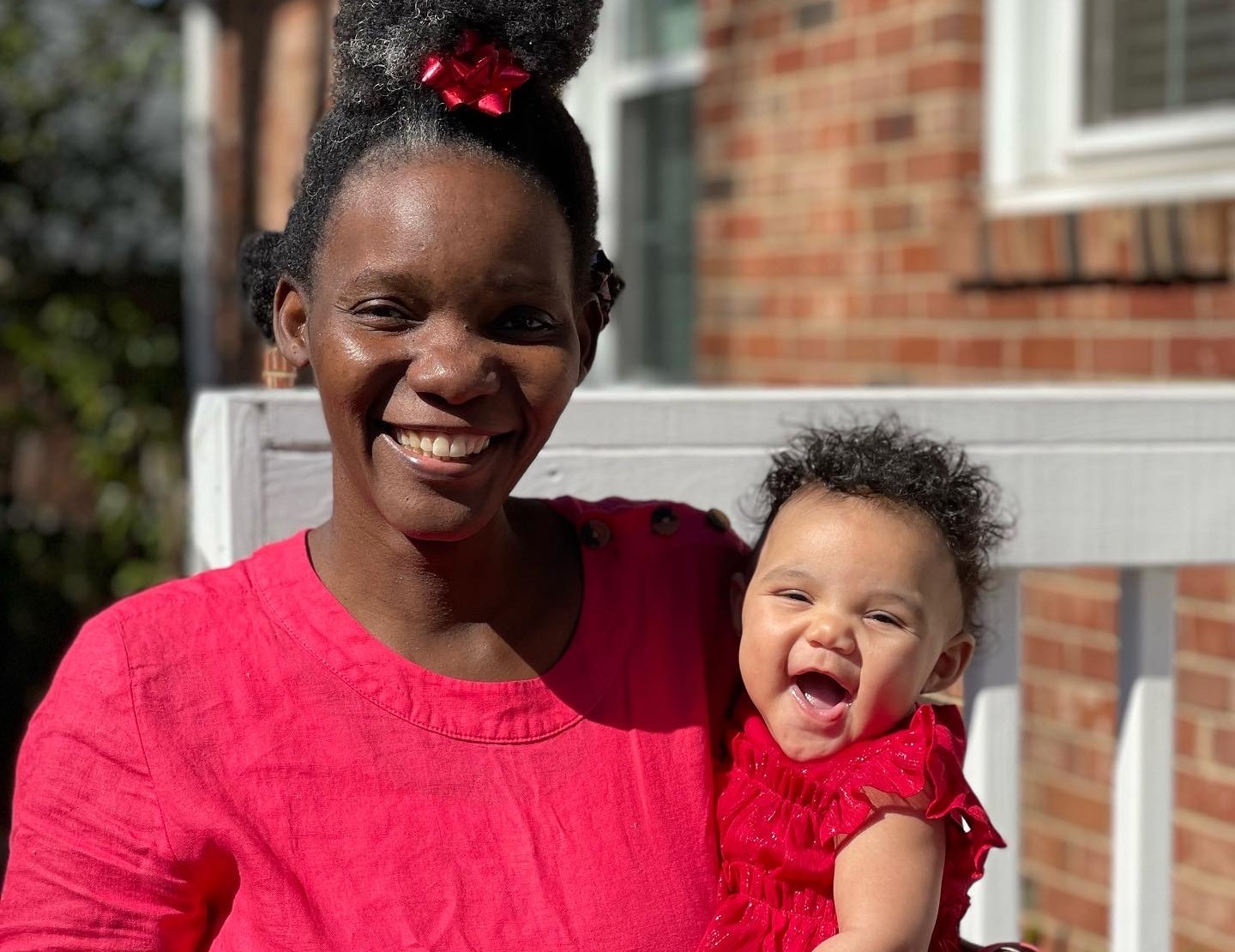
I’m a few years away from 40, so I am “old and tired” and do not see myself having a second child (my partner wanted to have twins and “be done”). Thanks for spending your time with me, and Happy Mothers’ Day to all the different categories of mums out there!

